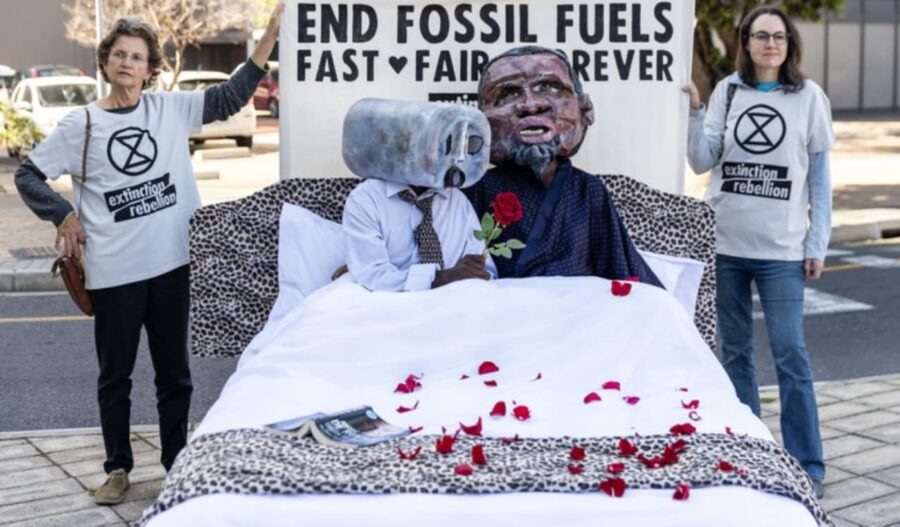
Government wants oil and gas exploration to be speeded up
Africa Oil Week panellists discuss opposition to oil and gas at Africa Oil Week

Opposition to oil and gas exploration was at the forefront of discussions at Africa Oil Week in Cape Town on Tuesday, with government agencies arguing that processes should be put in place to deal with challenges faster.
- The processes for dealing with environmental challenges to oil and gas exploration should be speeded up, government agencies argued at Africa Oil Week in Cape Town.
- Applications to explore oil and gas offshore by energy giants such as TotalEnergies have been opposed by environmental groups.
- Petroleum Agency of South Africa (PASA) chief executive Tshepo Mokoka said a tribunal or court could be set up to deal with these challenges.
In a panel discussion between the Petroleum Agency of South Africa (PASA), PetroSA, the Central Energy Fund, and the Strategic Fuel Fund, PASA acting chief executive Tshepo Mokoka, said the agency estimated South Africa’s exploration opportunities at about 27 billion barrels of oil, 60 trillion cubic feet (tcf) of offshore natural gas resources, and 200 tcf of onshore gas. PASA promotes the exploration and development of onshore and offshore oil and gas resources on behalf of the government.
But, Mokoka said, time spent dealing with attempts by non-governmental organisations to block oil and gas projects had to be shortened. “It becomes important for us to find ways to speed up the resolution of whatever conflict we might have on the legal front with the NGOs,” he said. Mokoka suggested that a tribunal or court should be set up to deal with these cases.
Earlier this month Environment Minister Barbara Creecy rejected appeals to block TotalEnergies’ application to drill for gas and oil over 10,000 square kilometres off the West Coast between Cape Town and Cape Agulhas.
Environmental groups, fishers, and the Western Cape’s Department of Environmental Affairs and Development Planning had sought to persuade environment minister Creecy to set aside the environmental authorisation granted to the French giant by the Department of Mineral Resources and Energy (DMRE) in April.
TotalEnergies has other oil and gas projects currently in the pipeline but not yet finalised, such as the West Coast’s Deep Water Orange Basin and the Cape South Coast. GroundUp has reported that fishers on the West Coast are worried that this project will destroy their livelihoods.
Sandisiwe Ncemane, interim CEO at PetroSA, said gas was part of a “diversified energy mix” and a balance had to be found between development and environmental sustainability. PetroSA has a 20% stake in the TotalEnergies exploration and production.
Gas has been placed at the centre of South Africa’s Just Transition, the Presidential plan to move to a low-emissions and climate-resilient economy. The DMRE’s Integrated Resource Plan (IRP), places natural gas as a “critical component” in the transition, and a resource that will “complement renewable energy”.
Part of the Just Transition would involve converting coal-fired power plants to gas over time, said Bongani Sayidini, the chief operating officer at PASA.
Exploration and production must be processed faster, he said, especially environmental authorisations. He said the DMRE processed applications for exploration rights “quite efficiently” but that the process met with hindrances at the Department of Forestry, Fisheries and the Environment.
Sayidini suggested that a proper and robust “climate change impact assessment” could be added to the requirements.
ALSO READ: Bag a bargain: International flights for R750!
“These environmental groups have an easy way of saying that a climate change assessment has not been done,” he said.
Outside the conference, a handful of Extinction Rebellion activists protested, calling for an end to fossil fuel use.
